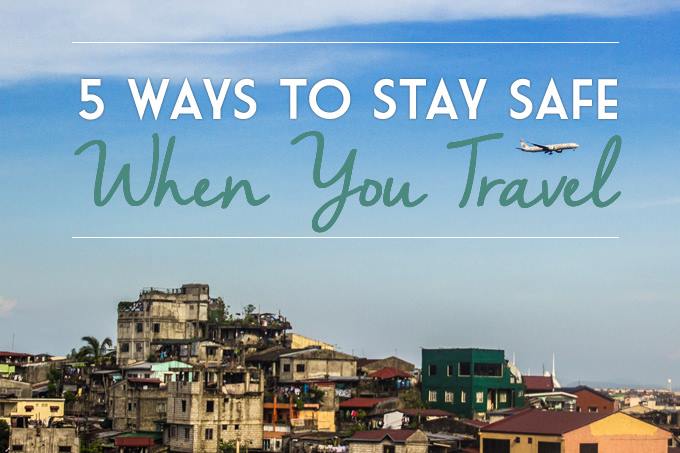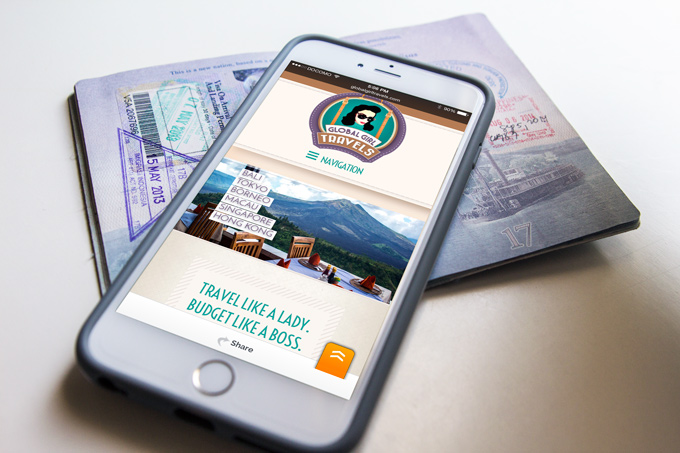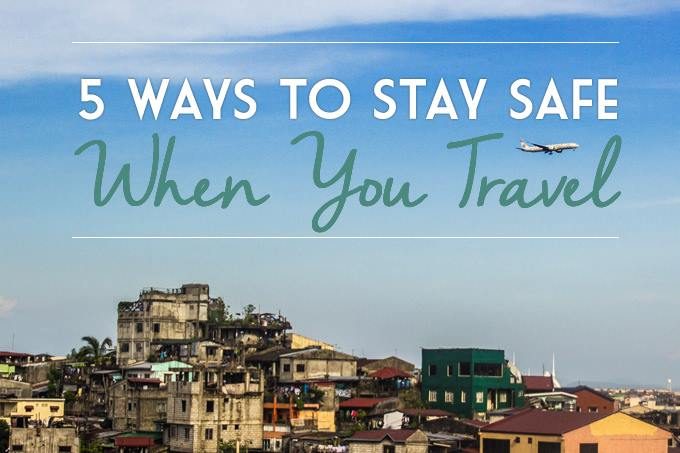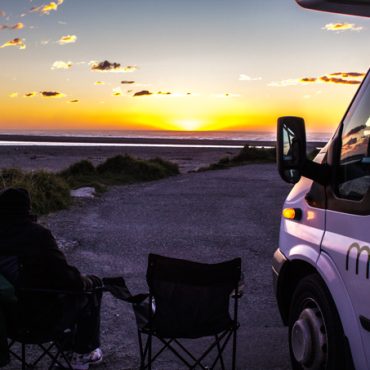
With the recent hostage fatalities in Paris (and before that Sydney), it’s obvious the world is not becoming a safer place for residents or travelers. Instead of staying home and bolting the door, you can still travel the world, it just requires a little more preparation and vigilance. I never recommend going into hot zones where there is civil war, disease outbreaks, or known natural disasters, however I did fly to Europe the week after 9/11. As always, use your common sense and do your homework before and during your travel. If nothing else, adhering to these five tips will ease the minds of your friends and family back home while you’re traveling abroad.
Be aware of threats and warnings
Stay in the loop on security threats and warnings to any destination you are planning to visit. If you are traveling abroad, sign up for the Department of State’s Smart Traveler Enrollment Program (STEP), which will send you security updates, and make it easy for the consulate to contact you in an emergency. (You can also download the department’s Smart Traveler app.)
For updates on a specific destination, check out the State Department’s official country pages. Links to any additional security messages, along with travel alerts and warnings, will appear at the top of each country page. You can also check the State Department’s consular alerts at the Bureau of Diplomatic Security website. They are often more site-specific and timely than the official State Department alerts. Britain’s Foreign and Commonwealth Office also issues country-specific alerts and warnings, sometimes in language that is less circumspect than that of the State Department. Find them here.
My roommate checked these sites during the post 9/11 week we were in London. We changed our travel plans from Rome to Nice to avoid animosity towards Americans reportedly in Italy. I was bummed not to go to Italy, of course, but Nice was fabulous!
Know where the U.S. Embassy is
Whatever your nationality is, find the relevant embassy before you leave home. Store the address and phone number in your phone and keep a hard copy with your passport. If airports are shut down, military planes may be the only exit strategy.
Bring cash
Carry enough cash for transportation in case of power outages or network failures. Wear a money belt or tuck the money inside your clothing. Keep a mix of local currency and your home currency. You should always have enough money in the bank or on credit to get home early. Flight change fees are exorbitant, but I’ve actually negotiated them down to nothing just by explaining my situation to an airline rep in a calm, assertive manner.
Store copies of important documents

This is good practice for all travel. Make a copy of your passport, credit cards (front and back), tickets, car and room reservations, as well as important phone numbers. Leave a copy at home with someone easy to contact in case of emergency. Store a copy in your locked suitcase as well. In case your passport or wallet is stolen, you have back-up. Report any thefts to your credit agency immediately (they will put a stop on your card).
It’s also good practice to photograph the contents of your suitcase and carry it on your person. This way you can make a full report to relevant airlines, hotels, and police if anything is stolen. Again, leave a copy of the photograph with someone trusted at home.
Don’t rely solely on electronic devices to retrieve important documents. They fail! Keep multiple hard copies as a back-up.
Don’t go to nightclubs
Nightclubs in foreign countries are notoriously dangerous for naive tourists. This is especially true if you’re traveling solo or are young. You’ve seen “Taken”, haven’t you? Travel blogger Gary Arndt wrote a great post about the number one way to stay safe. Guess what it was? Avoiding nightclubs! All kinds of nefarious activities take place at nightclubs in foreign countries from drugs to prostitution, the worst being kidnapping or murder. Even if you think you’re a savvy nightclub goer, you could unknowingly be drugged or robbed. There are plenty of other ways to enjoy your travels and a hangover won’t serve you well the next morning. If you find yourself struggling with the aftereffects of a night out, consider exploring options for in home detox program to ensure your safety and well-being.




Comments 6
January 14, 2015 at 10:00 am
These are some great advice, and I’m glad you mentioned about knowing where your embassy is! You can never emphasize on the importance on safety when traveling 🙂
http://www.recalcitrantgirl.com
January 14, 2015 at 10:35 am
this is a great post! very useful, thank you!!!
http://www.modeography.com/
January 15, 2015 at 1:48 am
Great advice! I also think that’s really important that you know where the embassy is, but I think it also depends on which country you’re going I think.
January 20, 2015 at 2:19 pm
From that one time I had food poisoning while visiting Aitutaki….I would also definitely recommend jotting down the nearest doctor or medical facility to where you’re staying – good to know before you ever need it! Also travel insurance can be a life-saver 🙂
Jessica
http://www.thebellevoyage.com
January 21, 2015 at 12:53 pm
Ahh, those are good suggestions!
January 29, 2015 at 4:59 pm
These are really great tips. Thanks for this post!